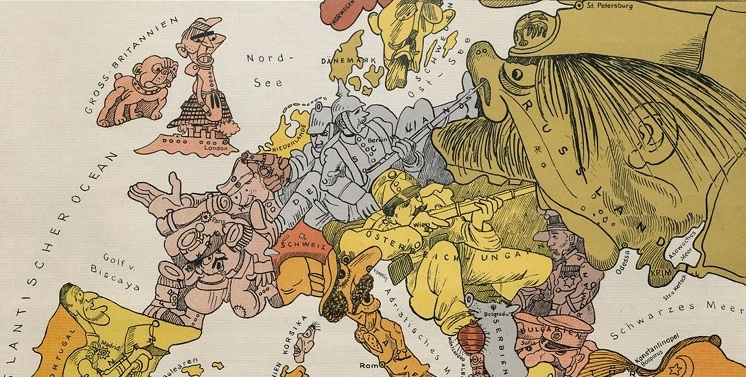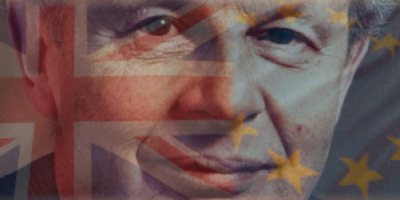Next week Thursday the Brits will decide whether or not they want to stay in the EU. Latest polls shows a swing towards the Leave vote. Its a decision of great consequence for all of us living on the mainland.
Sometimes (when losing sight of the bigger picture) I find myself sympathising with the view that the EU would be better off without half-hearted Europeans; for resolving many of the EU’s current challenges requires deeper integration and collective action, impossible with an obstructionist UK still in the club.
Stepping back to take a broader view, however, I fear both the UK and the EU stand to lose more through ‘widening’ the English Channel. To illustrate, let me quote some leading British sources.
Robert Innes, the Bishop of the Church of England Diocese in Europe: ‘A lot of talk about Europe in the UK takes place at a low and uninformed level. It isn’t possible to live in Brussels for long without becoming aware of how insular British attitudes to the ‘continent’ are. We often only seem to want access: to be in, but not of, the European project. To be constantly questioning our involvement. Can we really not do better than criticising from the side-lines? The constant questioning and scepticism has itself reduced British influence, which makes negotiating the changes that we would apparently need to stay in the Union all the harder.
‘Although the EU is not perfect, if it did not exist it then something like it would have to be re-invented. I want the debate … to be concerned with whether or not today’s EU is still up to engendering those delightful founding values of reconciliation, peace-making, neighbourliness and solidarity.’
Rowan Williams, former Archbishop of Canterbury: ‘My fear is that if Britain steps back from Europe it will be stepping back from its own heritage. In Britain we have not done too badly in sharing with and learning from others. In talking in isolationist terms we run the risk of nailing our colours to a myth.’
Justin Welby, current Archbishop of Canterbury, wrote in yesterday’s Daily Mail of a vision of peace and reconciliation, of being builders of bridges, not barriers. ‘In no sense do I have some divine hotline to the right answer. But for my part, I shall vote to remain.’ Warning against ‘succumbing to our worst instincts’ over immigration, the archbishop said he would vote to stay in on 23 June to avert economic damage that could harm the poorest.
Julian Lindley-French, security specialist and NATO advisor, (contributor to last month’s State of Europe Forum in Amsterdam): ‘There is much about the EU I find nauseating, even potentially inimical to democracy. However, the world is too dangerous and Europe too unstable for Britain to flounce out. I want Britain, a top five world political, economic, and military power in the EU fighting like mad for a super-alliance of nation-states in which power remains close to the people, and accountable to them.
‘Brexit is a symptom of a big strategic crisis in Europe. Precisely because Europe is in crisis, I cannot countenance Britain, Europe’s leading military power and second biggest economy, leaving the EU at this moment. I would describe myself as a Europhile, EU-sceptic. I believe deeply in European co-operation, but completely reject the dangerous idea of a European super-state. The EU is a fact of life–stay or go. Even Jean-Claude Juncker has admitted the EU needs a new political settlement for Eurozone and the non-Eurozone to cohabit.
‘This is a dangerous strategic moment. All of us in the EU need to be focused on events in Russia and the Middle East and yet we are not. The Scottish referendum effectively paralysed the British government for two years. Whitehall is again paralysed in the run-up to this referendum. Brexit negotiations will take at least two years, more likely five or more years. Our strategically-illiterate elite need little excuse to take their collective eye off the big strategic ball again.
‘In January 2016 I stood in the Lithuanian snow not far from the border with Russia. In November 2015 and March 2016 terrorist attacks took place in Paris and Brussels. Europe is locked in two big, bad struggles with big, bad forces. We simply cannot isolate ourselves. We must stand with our friends and allies both in NATO and the EU.
‘Brexit now would send all the wrong signals to all the wrong people.’
Steve Clifford, General Director of the Evangelical Alliance in the UK: ‘Above all we must remember to pray, for a constructive way forward for this country, for the EU and for a Europe where the name of Jesus continues to be known and proclaimed.’
Till next week,



